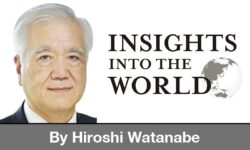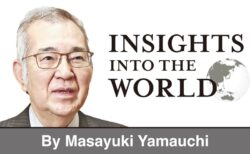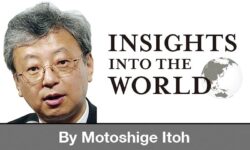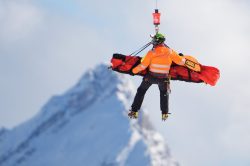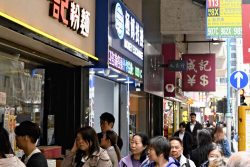11:30 JST, May 27, 2022
There has been a great deal of pessimism in recent years over the fate of the liberal democratic world order. According to Freedom House, the aggregate level of democracy around the world has declined for 16 straight years, with some of the biggest declines coming in the world’s two largest democracies, the United States and India. Democracies seemed to be failing at the most basic tasks of governing, like managing the COVID-19 crisis, while dictatorships like Russia and China have been powering ahead. Authoritarian governments could be quick and decisive, not prone to the hesitance, arguments, and divisions of democratic states. We have seen the rise of populist leaders in many democracies, including the United States, who have attacked the liberal world order and undermined the rule of law in their own countries.
This narrative may now be changing. Over the past few months, we have seen two major examples of disastrous decision-making by authoritarian great powers. The first was, clearly, the Russian invasion of Ukraine: This unprovoked aggression has killed tens of thousands of innocent Ukrainian civilians and wrecked much of that country’s infrastructure. But Russia is on the way to losing the war. It has already been forced to retreat from the area around Ukraine’s capital, Kyiv, and to dramatically scale back its objectives to holding on to the eastern Donbas region.
The cost to Russia has been enormous as well. President Vladimir Putin evidently ordered the attack believing that the Ukrainian government would fall in a matter of days, and that ordinary people would welcome the Russians as liberators. Instead, Ukrainian resistance was fierce and skilled, and a significant part of the Russian military has been annihilated. Moscow’s humiliation was symbolized by the sinking of the Moskva, the flagship of the Russian Black Sea fleet, and by videos of abandoned Russian tanks being towed away by Ukrainian farmers. Putin justified his invasion on the supposed threat posed by the NATO alliance’s expansion into former Communist territories, and yet NATO is now likely to expand to include Finland and Sweden. In the meantime, unprecedented economic sanctions have been imposed on Russia by the democratic world, which over time will cripple that country’s economy and isolate it from the rest of the world.
Putin is no more likely to succeed in this second, more limited phase of the war than he was in the first. Longer-range weapons like artillery, drones, and aircraft have been pouring into Ukraine from different NATO countries in recent days, which are likely to batter the exhausted and overextended Russian forces in Donbas. The most important factor is the same one that allowed Ukraine to be victorious in the first phase of the war: morale. While Russian soldiers have been deserting and civilians have been leaving the country, as many as a quarter-million Ukrainians living in other parts of Europe have returned to their country to help fight the invaders.
Isolated leadership
At the other end of Eurasia, China is engaged in a senseless struggle to maintain its zero-COVID strategy in the face of a massive outbreak of new variants of the virus. The strategy involves locking down entire cities like Shenzhen and Shanghai, with parents being separated from their children, thousands of asymptomatic people being put in massive quarantine facilities, and shut-in citizens wailing about being unable to buy food or medicines. These shutdowns will have huge consequences for the Chinese economy, since China remains crucial to global supply chains that have already suffered huge disruptions from COVID outbreaks outside China.
All countries make big policy mistakes, and the United States has unfortunately seen a large share of them so far in this century. But the disastrous choices made by Russia and China in recent months are the results not simply of poor information or bad judgment on the part of individual leaders; they result directly from the authoritarian nature of the two countries’ political systems. Both countries have evolved into a form of personalistic authoritarianism that gives untrammeled authority to a single individual at the top. There are very few checks on that individual’s power, and no way of the system reversing course in the face of evident failure.
This lack of checks on power is particularly evident in the case of Russia. Many commentators have noted that Putin has become very isolated in the course of the COVID epidemic, symbolized by the photos of him conferring with key advisers at the end of a long table. This relationship between Putin and his closest advisers, based entirely on fear, does not point to a political system that is capable of intelligent debate and deliberation. Putin instead lives inside an information bubble where no one dares to tell him the truth.
Critical juncture
We know somewhat less about the nature of high-level Chinese decision-making, but it is highly likely that something similar has been going on with President Xi Jinping. One of the hallmarks of the political system created by Deng Xiaoping after 1978 was a reliance on collective decision-making within at least the Standing Committee of the Chinese Communist Party’s Politburo. China was ruled by a CCP dictatorship, but it was a highly institutionalized one with term limits on the length of service of senior leaders, mandatory retirement ages, and a distinct aversion to the kind of charismatic leadership characteristic of the Mao Zedong era.
Many of these institutional checks have been dismantled by Xi, most notably the 10-year limit on his own term as the party’s general secretary and president. From what we know about the current system, much of the collective leadership system created by Deng has been eradicated. None of the other members of the Standing Committee has remotely the power and prestige of Xi, and have little power to advise him to reverse course. Xi has also sought to build a cult of personality around himself, with an ideological emphasis on “Xi Jinping thought” and comparisons to great Chinese leaders of the past. As in the case of Russia, it is not clear that anyone in the senior leadership is capable of standing up against him. Xi has personally invested a huge amount of his own prestige in the zero-COVID strategy, and one imagines that it is extremely difficult for anyone else in the CCP hierarchy to suggest otherwise.
The world is at a critical juncture with the invasion of Ukraine. Russia is seeking to destroy the democratic political settlement that emerged at the end of the Cold War and is being assisted in this by China, which similarly seeks to change the rules of the international order. The outcome of the conflict in Ukraine will therefore affect the fate not just of that country, but of the wider world as well. Every populist leader in the West — Marine Le Pen in France, Viktor Orban in Hungary, and Donald Trump in the United States — has looked up to Putin as a model leader. The defeat of Russia’s effort to conquer Ukraine will therefore have large and beneficial consequences for global democracy, and may signal a new shift toward global solidarity among democracies.
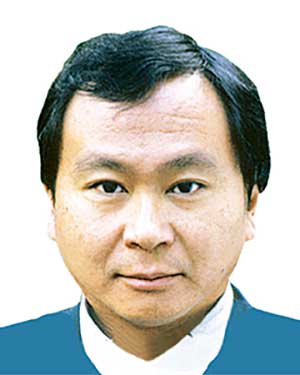
Francis Fukuyama
Fukuyama is a senior fellow at Stanford University’s Freeman Spogli Institute for International Studies.
Top Articles in Editorial & Columns
-

40 Million Foreign Visitors to Japan: Urgent Measures Should Be Implemented to Tackle Overtourism
-

University of Tokyo Professor Arrested: Serious Lack of Ethical Sense, Failure of Institutional Governance
-

Policy Measures on Foreign Nationals: How Should Stricter Regulations and Coexistence Be Balanced?
-

China Provoked Takaichi into Risky Move of Dissolving House of Representatives, But It’s a Gamble She Just Might Win
-
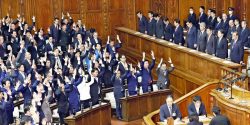
PM Takaichi Should Help Young Japanese Break Seniority Barrier to Vitalize Politics
JN ACCESS RANKING
-

Japan Institute to Use Domestic Commercial Optical Lattice Clock to Set Japan Standard Time
-

Israeli Ambassador to Japan Speaks about Japan’s Role in the Reconstruction of Gaza
-

Man Infected with Measles May Have Come in Contact with Many People in Tokyo, Went to Store, Restaurant Around When Symptoms Emerged
-

China Eyes Rare Earth Foothold in Malaysia to Maintain Dominance, Counter Japan, U.S.
-

Prudential Life Insurance Plans to Fully Compensate for Damages Caused by Fraudulent Actions Without Waiting for Third-Party Committee Review


